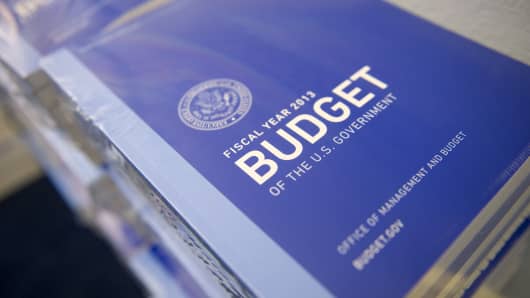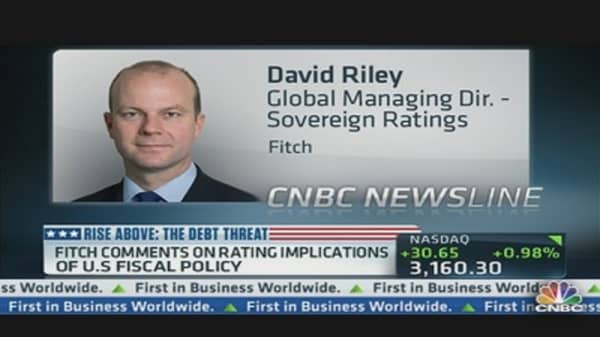The refusal to cut the U.S. again is curious, given that the Sword of Damocles has already fallen on both Britain and France — the euro zone's second-largest economy, which has been downgraded on two separate occasions by two different ratings firms.
(Read More: France Is Dealt Another Downgrade — Who Is Next?)
Adding insult to injury, both countries have forced through tough budget-tightening measures. The U.S.'s only brush with austerity has come via the automatic budget cuts that finally took effect with Friday's sequester.
Some might argue that the world's largest economy either has the luck of the Irish (who incidentally, have also been slapped with ratings cuts), or that ratings agencies are deliberately sparing their rod — perhaps in fear of retaliation from U.S. authorities.
(Read more: US Sues S&P Over Mortgage-Bond Ratings)
This week, Fitch gingerly sidestepped the issue of what it would take to trigger a downgrade. A top official told CNBC that more fiscal gridlock in Washington wouldn't necessarily a precursor for a ratings cut – even if it resulted in a government shutdown.
"The failure to reach agreement on a continuing resolution to keep the government operating clearly would be sort of a negative signal," David Riley, global managing director of sovereign ratings at Fitch in an interview on CNBC's "Squawk on the Street."
A potential shutdown like the 1995 standoff "in itself it doesn't threaten the capacity of the Treasury," Riley explained. "It would be short-lived…it wouldn't be good, but in itself it wouldn't trigger a downgrade from Fitch." The agency still rates the U.S. at triple-A.
Still, it may be only a matter of time before the sands of time run out on the U.S.'s credit rating. In a separate opinion this week, Fitch warned that a failure to hike the statutory debt ceiling could finally trigger a downgrade.
And in a carefully worded opinion last month, Moody's said it was "still too early to tell when a clearer picture of the medium-term deficit and debt trajectories will emerge, but we will reassess the rating (Aaa negative) during the course of this year."
Moody's added: "An agreement that arrests and ultimately reverses the debt trajectory would support a return to a stable outlook."
Yet consensus on federal spending is a tall order, considering that Congress and the White House than can barely agree on the time of day, let alone agree how to slice a $16 trillion debt burden.
Even the boundless patience of the ratings agencies may have its limits. Fitch's Riley implied that a concrete plan to reduce deficits was a linchpin to keeping its top rating.
"If you can't do a deal in 2013, when will a deal be done?" he asked. "Further delays in reaching agreement in reducing the deficit would just imply a bigger deficit and higher debt going forward."





